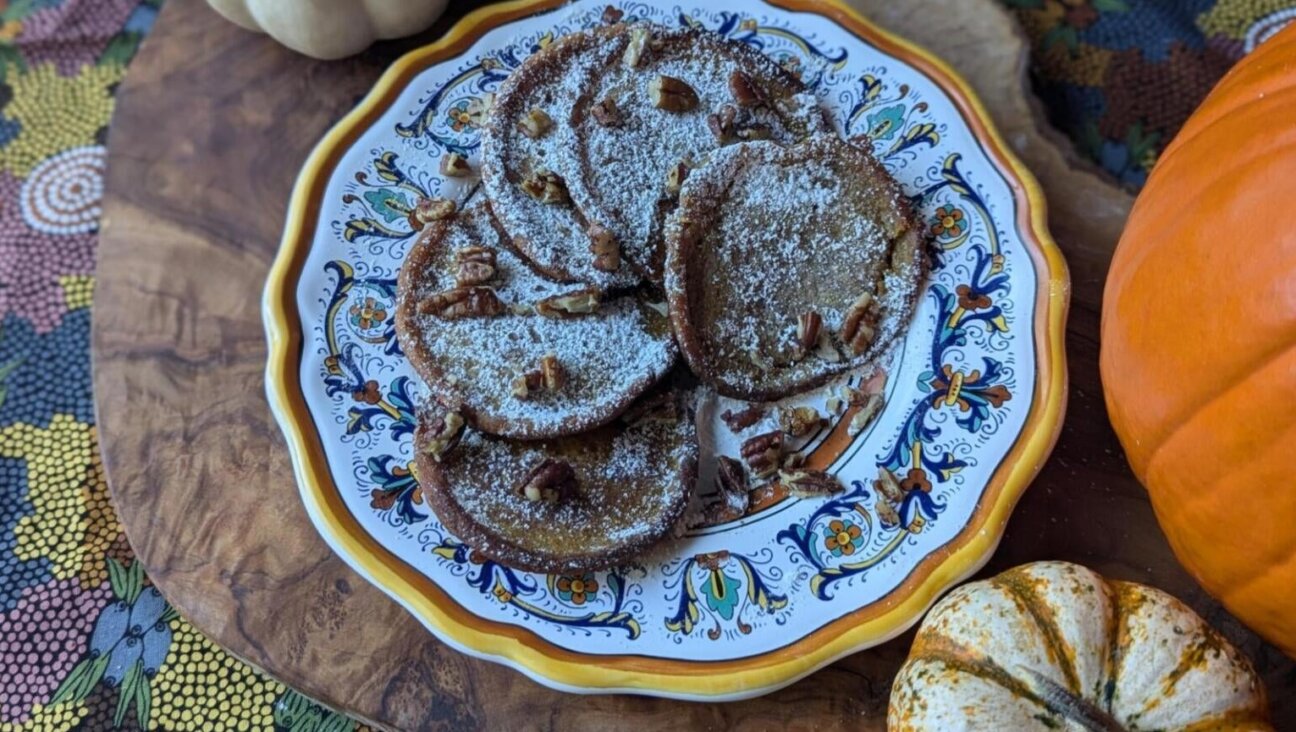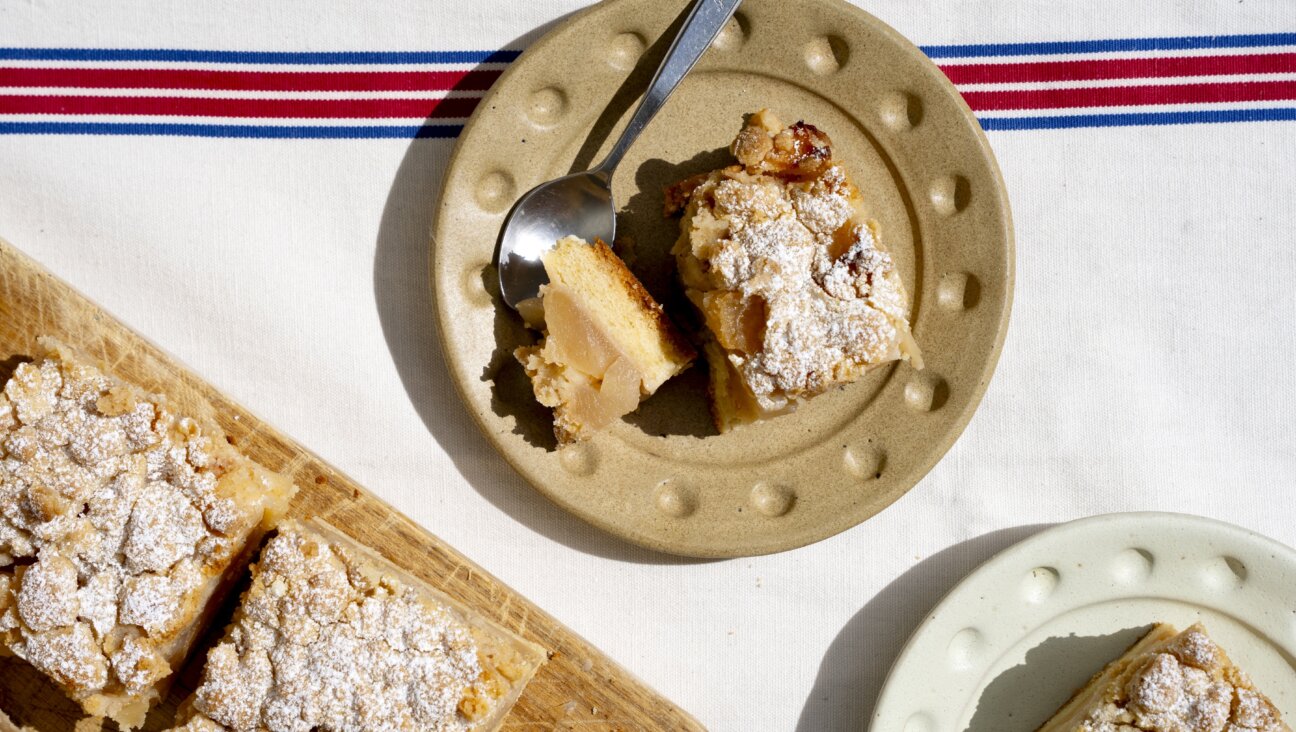Israeli Salads To Kick the Final Days of Winter

Graphic by Angelie Zaslavsky
(Haaretz) — For the interval between having filled ourselves with hamantaschen and stuffing ourselves with matza brei and matza ball soups, here are three light and airy end-of-winter salads.
Carrot ribbons with harissa aioli
This salad is a contemporary play on the classic Moroccan carrot salad. The carrots here are raw, and shaved into ribbons; the dressing is a homemade aioli mixed with harissa, a Tunisian hot pepper and spices paste available in health food supermarkets, kosher stores and Middle Eastern markets.
Serves 4
1 lb. carrots
1 egg yolk at room temperature
2 tablespoons lemon juice
1 garlic clove, minced
¼ cup olive oil
Kosher salt to taste
1-2 teaspoons harissa
¼ cup chopped cilantro leaves
1) Peel the carrots and shave them into long ribbons using a vegetable peeler. This is easier to do when lying the carrots on a cutting board. Place in a bowl.
2) To make the dressing, put egg yolk, lemon juice and garlic clove in a small bowl and whisk well for 1 minute. While whisking constantly, start adding olive oil drop by drop (it is essential to add the oil very slowly) until the dressing is thickened and emulsified. Add salt and harissa to taste.
3) Pour dressing over carrot ribbons and mix gently. Mix in the cilantro. Keep refrigerated until ready to serve.
Freekeh and avocado tabbouleh
The base of this salad is cooked freekeh, plenty of chopped herbs and greens, and a simple lemon-olive oil dressing. You can serve the salad just like that, or add avocado and feta cheese as I did. You can also add chopped tomatoes to bring the dish closer to the original tabbouleh.
Freekeh is smoked green wheat that is cooked similarly to bulgur. It is available at Whole Foods, as well as Middle Eastern and many kosher markets.
Serves 4-6
1 cup coarse freekeh, washed
1 teaspoon salt, plus more to taste
⅓ cup freshly squeezed lemon juice
¼ cup olive oil
1 hot pepper, seeds removed, chopped (optional)
1 cup cilantro leaves
1 cup mint leaves
1 cup parsley leaves
3 cups chopped wild arugula
6 green onions, chopped
1 avocado, in ½ inch cubes
¼ lb. feta cheese, crumbled
1) Put the freekeh, 1 teaspoon kosher salt and 1¼ cups boiling water in a small pot over medium-high heat and bring to boil. Reduce heat to low, cover and cook for about 30 minutes until freekeh is fully cooked and water has been absorbed. (Or cook freekeh according to the instructions on the package.) Let the freekeh cool for at least 30 minutes before continuing with the recipe.
2) Add lemon juice, olive oil and hot pepper to the freekeh and mix. Add chopped herbs and greens and mix, then gently mix in avocado and feta. Serve.
Watercress Tzatziki
Watercress, similar to the Arab rijla, works best, but arugula, another member of the family, will work well too.
The trick for making the tzatziki extra creamy and tasty is to add a few tablespoons of labneh to the yogurt. Labneh, a thick and sour yogurt cheese, is available at Whole Foods and kosher and Middle Eastern markets.
Serves 2-4
1 cup Greek yogurt
¼ cup labneh (or more of the Greek Yogurt)
Juice of ½ lemon
2 tablespoons olive oil
Salt to taste
1 large bunch watercress, chopped
In a large bowl, mix yogurt, labneh, lemon juice and olive oil. Add salt to taste. Mix in chopped watercress and serve.
For more stories, go to Haaretz.com or to subscribe to Haaretz, click here and use the following promotional code for Forward readers: FWD13.
















